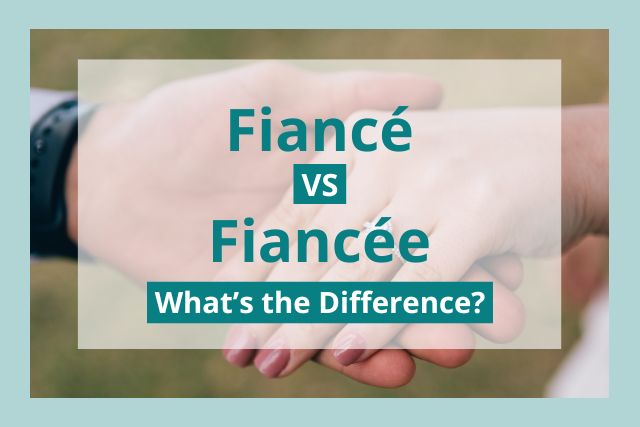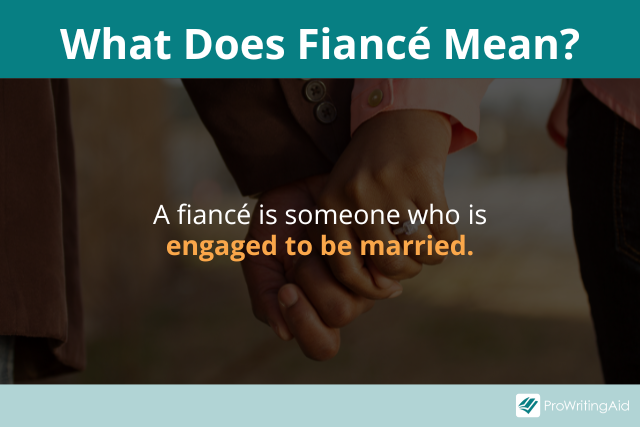
Both fiancé and fiancée are taken from the French language and refer to someone who is engaged to be married. However, the two words are not traditionally synonymous.
Fiancé, with one E, refers to a man who is engaged. Fiancée, with two Es, refers to a woman who is engaged.
Learn more about the difference between fiancé and fiancée, and see some examples of each word used in sentences.
Fiancée vs Fiancé Definition and Meaning
Both fiancé and fiancée have the same definition: they refer to someone who is engaged. But the two terms are traditionally gendered. Fiancé is the masculine form and fiancée is the feminine form. Let’s look at the difference in more detail.

Fiancé (for Men)
Fiancé, with one E, traditionally refers to an engaged man. However, many modern English speakers use fiancé as gender-neutral language to refer to anyone who is engaged.
Fiancée (for Women)
Fiancée, with an extra e, refers specifically to an engaged woman. This word is less commonly used ecause it cannot refer to a male in the same way that fiancé can refer to a female.
Where Does the Word Fiancé Come From?
Like so many words in English, the word fiancé comes from the French dictionary. It is an old French word that comes from the word fiancer, which means “to betroth.”
How to Pronounce Fiancé vs Fiancée Correctly
Despite the extra e, fiancé and fiancée are both pronounced exactly the same way.
The most common pronunciation of these words is: fee-on-say. But, you can also alter the pronunciation of the middle syllable like this: fee-ahn-say.
The first pronunciation, with the hard syllable, on, is more common in Britain. The second pronunciation, with the soft syllable, ahn, is more common in America.
Examples of Fiancée Used in Sentences
The best way to learn how to spell and use a word correctly is by seeing it in sentences. Here are some examples of fiancé and fiancée in complete sentences.
- Emmy, meet my fiancée, Crimson.
- Instead of calling Natasha my fiancée, I prefer to call her my betrothed because it sounds cooler.
- I don’t want to take part in the whole fiancée debate. I like that the term has a feminine version.
- She has been his fiancée for almost three years now.
Examples of Fiancé Used in Sentences
And now, here are some examples of the word fiancé used in sentences. In some instances, the word is specifically masculine; in others, it is a gender-neutral term.
- My fiancé is running a bit late because he had to drop the kids off at daycare.
- I loved being your fiancé, but I love being your husband even more.
- Is that your fiancé over there by the water fountain?
- Holly swore she saw Mike’s new fiancé kissing Jake. Can you believe it?
- She will finally marry her fiancé next week.
Conclusion on Fiancé vs Fiancée
Using the words fiancé and fiancée correctly is easy, as long as you follow two simple rules.
- If you can’t decide whether to use fiancé or fiancée, opt for the more common spelling with one E.
- Always add an acute accent to the first E of the word.


